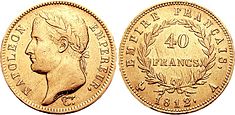Laureate
This article needs additional citations for verification. (February 2020) |
In English, the word laureate has come to signify eminence or association with literary awards or military glory. It is also used for recipients of the Nobel Prize, the Gandhi Peace Award, the Student Peace Prize, and for former music directors of orchestras who retain some level of involvement.
History
In
laurel (Laurus nobilis) was sacred to Apollo, and as such, sprigs of it were fashioned into a crown or wreath of honor for poets and heroes.[1] This symbolism has been widespread ever since. "Laureate letters" in old times meant the dispatches announcing a victory; and the epithet was given, even officially (e.g. to John Skelton) by universities, to distinguished poets.[2]
The name of "bacca-laureate" for a
Poet laureate
Sir
Alfred Tennyson; and, four years after Tennyson's death, Alfred Austin. The office took on a new luster from the personal distinction of Southey, Wordsworth and Tennyson; it had fallen into contempt before Southey, and on Tennyson's death there was a considerable feeling that no possible successor was acceptable, William Morris and Algernon Charles Swinburne being hardly court poets. Eventually, however, the undesirability of breaking with tradition for temporary reasons, and thus severing the one official link between literature and the state, prevailed over the protests against following Tennyson by any one of inferior genius. Abolition was similarly advocated when Thomas Warton and William Wordsworth died. The poet laureate, being a court official, was considered responsible for producing formal and appropriate verses on birthdays and state occasions; but his activity in this respect has varied, according to circumstances, and the custom ceased to be obligatory after Pye's death. Wordsworth stipulated, before accepting the honor, that no formal effusions from him should be considered a necessity; but Tennyson was generally happy in his numerous poems of this class. The emoluments of the post have varied; Ben Jonson first received a pension of 100 marks, and later an annual "terse of Canary wine." To Pye an allowance of £27 was made instead of the wine. Tennyson drew £72 a year from the Lord Chamberlain's department, and £27 from the Lord Steward's in lieu of the "butt of sack."[2]
See also
Look up laureate in Wiktionary, the free dictionary.
References
- ISBN 978-0300120141.
- ^ a b c One or more of the preceding sentences incorporates text from a publication now in the public domain: Chisholm, Hugh, ed. (1911). "Laureate". Encyclopædia Britannica. Vol. 16 (11th ed.). Cambridge University Press. pp. 282–283.

